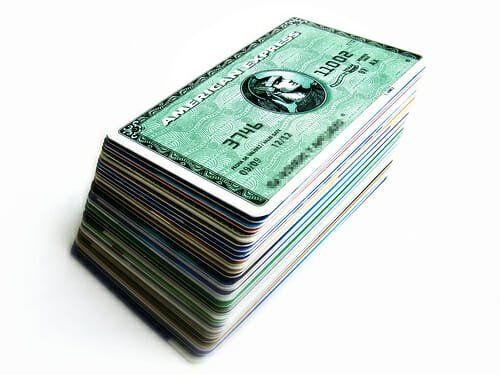Last Updated: March 14, 2024
Navigating Your Options and Finding the Right Solution

Disclaimer: We are not qualified legal or tax professionals and are not giving advice. Always speak with a qualified professional before making any legal or financial decisions.
Struggling with credit card debt can feel like an uphill battle, with the summit nowhere in sight. However, armed with the right strategies and a bit of determination, conquering that mountain is more achievable than you might think.
This guide is designed to illuminate the path to financial freedom, offering proven tactics to tackle credit card debt head-on. From understanding the impact of interest rates to utilizing effective repayment methods, we'll walk you through actionable steps to not only manage your debt but to pay it off faster than you imagined possible.
Let's embark on this journey together, transforming the way you handle debt and paving the way to a more secure financial future.
If you'd rather speak to a debt specialist now, click here for a free consultation.
Logical Credit Card Debt Tips
Your Options Explained
The first step to getting out of debt is to understand the options that are available to you. All of the advertisements that you see will typically be offering 1 of the following 4 main debt relief options.
For a consumer looking to pay off their credit card debt, the best advice we can offer is to make sure that you understand these options and the differences between them. If you're exploring strategies to manage your debt effectively, understanding the role of APR in balance transfers can be crucial. Learn more about using zero percent APR balance transfer to manage credit card debt.
Debt Consolidation Loans
Although Credit Card Debt Consolidation Loans are very difficult for consumers to get these days, if you can secure one at a much lower interest rate than you are currently paying, it will save you some money in the long run. Paying off credit card debt on a tight budget can be particularly challenging, and understanding various approaches is essential. Explore strategies to pay off credit card debt even when your budget is constrained.
The concept is simple. If you are currently paying an average interest rate of 20% and you can find a loan at 12%, you can payoff your high-interest rate loans and consolidate them into one monthly payment at a lower rate.
Consumers looking for the Best Debt Consolidation Loans typically have better luck applying for a loan from a peer-to-peer lending network like a lending club rather than going to a traditional bank.
A debt consolidation loan is a good option if you can find a loan, have great credit, but high interest rates, and can easily afford the monthly payments. Unfortunately, this doesn’t describe the situation of most families in America today.
Consumer Credit Counseling

For consumers who are unable to secure a debt consolidation loan, they will next typically look at a consumer credit counseling (CCC) program for possible help. A CCC program does not offer consumers a new loan. Instead, they will negotiate a lower interest rate with your existing creditors in an attempt to have more of your monthly payment applied to the principal.
One of the benefits of a CCC program is that it allows you to consolidate all of your payments into one payment and will usually have your debts paid off in about 5 years. Also, you will typically pay less money overall if you currently have high-interest rates with your creditors.
Some of the drawbacks to a CCC program is that the monthly payment is not flexible, and often times it can be higher than the minimum payments you are making currently. Compared to a debt settlement or bankruptcy, a CCC program is not as damaging to your credit report, but it will show up on your report that you are enrolled in a CCC program and your credit cards will be closed.
A CCC program is typically a good option for consumers who are current on their credit cards, can easily afford the monthly payment, and should have no problem doing so for the next 5 years, but just want to consolidate their payments, lower their interest rates and see some light at the end of the debt tunnel. If you are currently or foresee a time when you will be struggling just to make your minimum payments, a debt settlement option should definitely be explored.
Debt Settlement
If neither of the above two options makes sense, and a consumer either can’t qualify or wishes to avoid a bankruptcy filing, then a debt settlement approach is a good option to consider. Debt settlement is not a loan or a program to reduce your interest rates.
With a debt settlement strategy, you attempt to negotiate the principle debt down to less than the full balance. Under the right circumstances, lenders do agree to accept less than you owe to satisfy the debt in full.
Some of the benefits of a debt settlement approach are that you could be out of debt for much less money and in a much faster time frame than with either a debt consolidation loan or a credit counseling program. It is a much more flexible option in terms of your monthly cash flow. It provides an opportunity for consumers who can’t afford their minimum payments to potentially avoid a bankruptcy filing.
One of the drawbacks to a debt settlement approach is you will not pay your creditors until you have enough money to settle the account with them. Because of this, you will take a hit to your credit. If it takes too long to raise the funds, there is a potential for legal action. You will very likely be contacted by your creditors asking why you have not paid them.
A debt settlement approach is a great option to research if you are currently struggling to make your minimum monthly payments or have already fallen behind. Getting out of debt is more important to you than protecting your credit score over the next few years. You do have the ability to pay something toward your debt and you either can’t qualify or wish to avoid filing for bankruptcy.
If you're feeling overwhelmed by credit card debt, a nonprofit credit counseling agency can help. They provide education and customized advice on managing your debt. A counselor reviews your full financial situation and makes recommendations on the best approach.
Credit counseling services are often free or low-cost. They can help you set up a debt management plan, negotiate with creditors, consolidate payments, and learn better money management skills. Research reputable agencies and set up a consultation to see if it's right for you.
Bankruptcy
Most consumers are familiar with this option and inherently wish to avoid it, although, sometimes this can certainly be the best option. With consumer bankruptcy, there are two main chapters to look at, Chapter 7 and Chapter 13.
Chapter 7 is what most people think of when they hear the word bankruptcy. Chapter 7 will typically wipe the slate clean and give you a fresh start. Depending on your income and assets, you may not qualify for a Chapter 7 filing and may need to file a Chapter 13.
With a Chapter 13 bankruptcy, instead of wiping the slate clean, you will typically enter into a repayment program over a 3 to 5-year period.
Since all states are different and there are many factors that go into determining which chapter you could qualify for, it is best to meet with a qualified bankruptcy attorney licensed in your state to determine if bankruptcy is the best solution for you.
When it comes to credit card debt tips, the most important thing to take away from this article is to be sure and research each option in detail so that you can determine which strategy will provide the best overall solution to your debt situation.
At Pacific Debt, we help consumers settle their debts with creditors on a daily basis. If you think that a settlement approach might be right for you, feel free to contact us for a
free debt settlement evaluation. We don’t charge a dime until we can settle your debt, so if you are not a good candidate for a settlement approach, we will help you figure out what is.
Understanding Credit Card Interest Rates
Credit card interest rates can vary widely, from under 10% to over 30%. The rate you pay depends on factors like your credit score, the type of card, and whether it's a retail store card or a general-purpose card from a bank. It's important to understand how much interest you're paying and look for lower-rate cards when possible.
Higher rates make it harder to pay off your balance since more of your payment goes to interest rather than the principal amount you owe. Check your statements to see your current rates. Consider balance transfer offers to move your balance to a lower rate card temporarily. Look for low introductory rate cards you may qualify for.
Things to Consider:
- Types of rates (fixed, variable, introductory)
- Factors that determine your rate (credit score, card type, issuer)
- Importance of checking statements for current rates
- Impact of rates on paying off balance
- Finding lower interest rate options
Watch Out for Credit Card Fees
In addition to interest charges, credit cards can carry other fees that add to your costs. These include annual fees just for having the card, balance transfer fees, cash advance fees, foreign transaction fees, and late payment or over-limit fees.
Review your credit card agreements to understand all the fees you may be charged. Select cards with lower or no annual fees. Avoid extra charges like cash advances and late fees by changing your spending habits. Fees can really add up, so know what you're paying for.
Things to Consider:
- Common fees (annual, balance transfer, cash advance, foreign transaction, late, over limit)
- Reading agreements to understand potential fees
- Tips to avoid fees (pay on time, proper usage, avoid cash advances)
- How fees add to the total cost
Which Option Is Right for You?
Choosing the best debt relief option depends on your specific financial situation and debt circumstances.
Consider factors like:
- Your current income and expenses
- The total amount and types of debt you have
- Your credit score and history
- Your ability to make monthly payments
- How quickly do you need debt relief
- Your goals after becoming debt-free
Those with good credit scores and high-interest debt may benefit most from debt consolidation loans or balance transfer cards. Those who need urgent debt relief can explore options like debt settlement or bankruptcy.
Think about the pros and cons, costs, and timelines for each option. Make a list of your top priorities and needs to determine which option aligns best. There is no one-size-fits-all solution - the right choice depends on your unique situation.
Credit Counseling Can Provide Guidance
Nonprofit credit counseling agencies help those struggling with debt through services like:
- Debt management plans to consolidate debts into one payment
- Lower interest rates negotiated with creditors
- Budgeting and money management assistance
- Credit report reviews and analysis
- Advice on prioritizing and paying off debts
- Debt repayment planning over 3-5 years
Counseling is often free or low-cost. Find an NFCC or CES-accredited agency. Ask about their services, costs, and qualifications. Many offer phone and online consultations for convenience.
In a credit counseling session, you will review your full financial picture. The counselor will explain your options, offer money-saving tips, and help create a customized action plan. This expert guidance can provide much-needed clarity and direction.
FAQs
Conclusion
Dealing with overwhelming credit card debt can feel extremely stressful and confusing. You may feel unsure of where to turn or what your options really are. You don't have to struggle alone with credit card debt.
When you're struggling with high-interest payments and balances you can't seem to get ahead of, it can negatively impact all areas of your life. The debt takes an emotional toll and makes it hard to focus on your future.
But there is hope - reputable debt relief options are available that can provide clarity and help you make a plan to work towards financial freedom. The key is talking to an expert who can objectively assess your situation and explain your options.
If you are struggling with overwhelming debt and want to explore your debt relief options, Pacific Debt Relief offers a free consultation to assess your financial situation. Our debt specialists can provide objective guidance relevant information and support to help find the right debt relief solution.
*Disclaimer: Pacific Debt Relief explicitly states that it is not a credit repair organization, and its program does not aim to improve individuals' credit scores. The information provided here is intended solely for educational purposes, aiding consumers in making informed decisions regarding credit and debt matters. The content herein does not constitute legal or financial advice. Pacific Debt Relief strongly advises individuals to seek the counsel of qualified professionals before undertaking any legal or financial actions.
Reduce Your Credit Card Debt By Up to Half

BBB Reviews | 4.9/5.0 Rating









 Do Not Sell My Personal Information
Do Not Sell My Personal Information